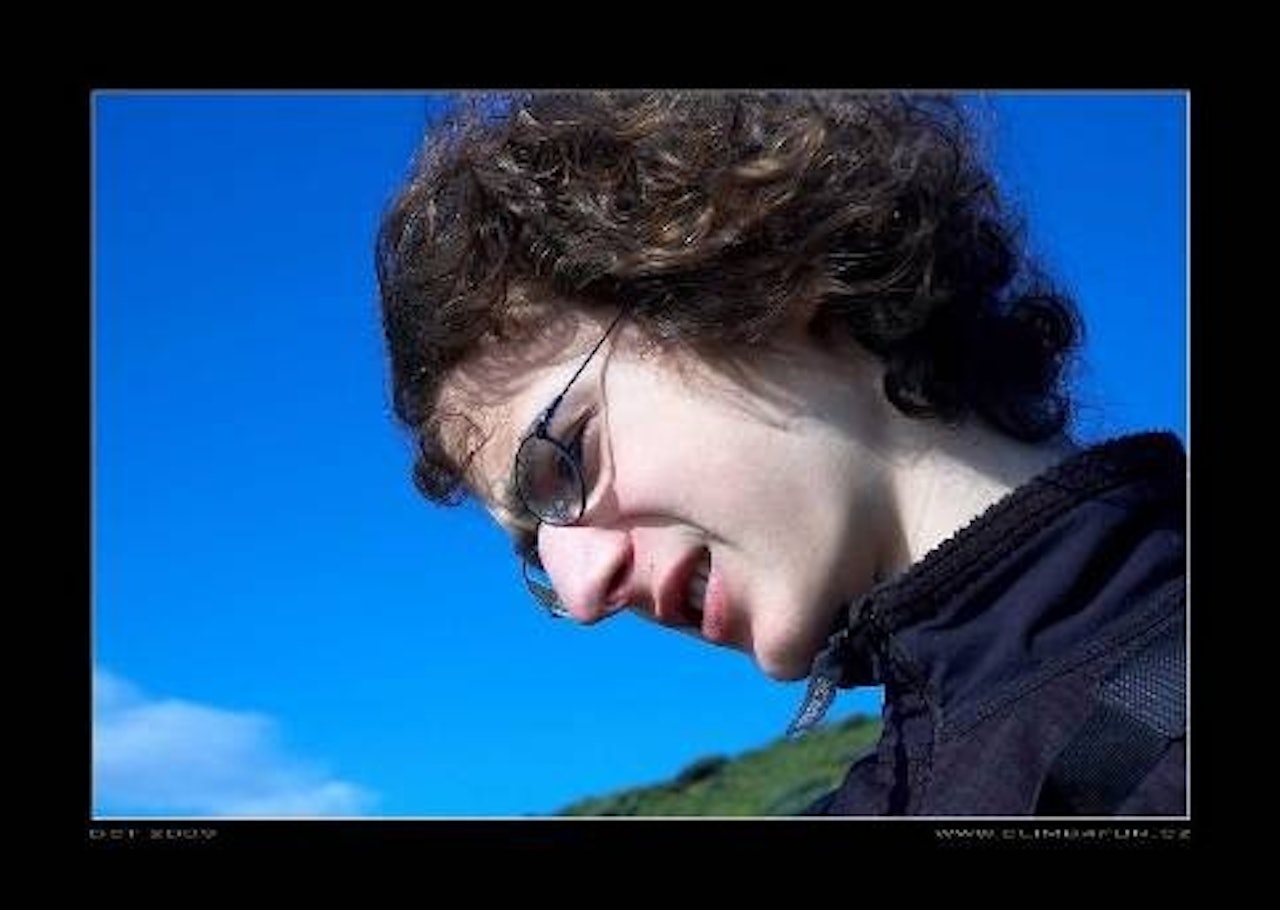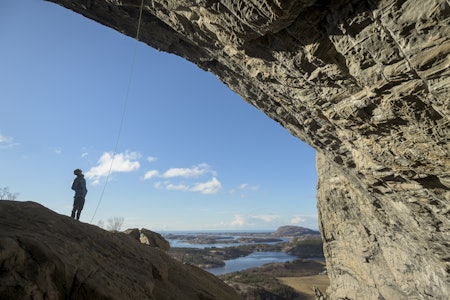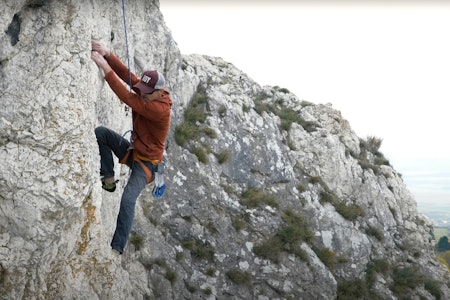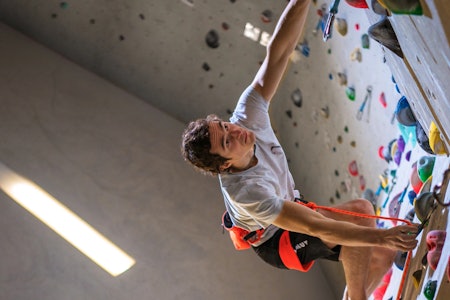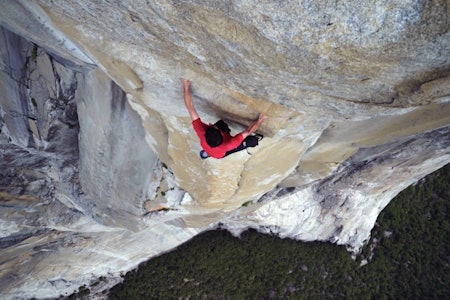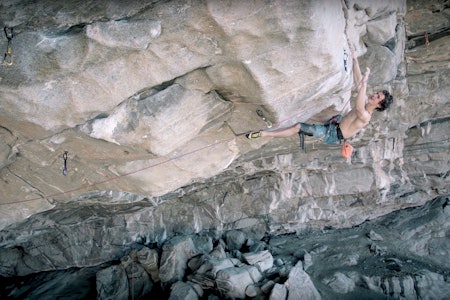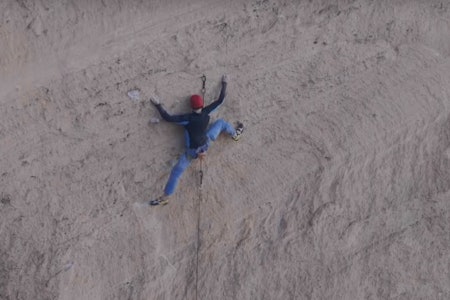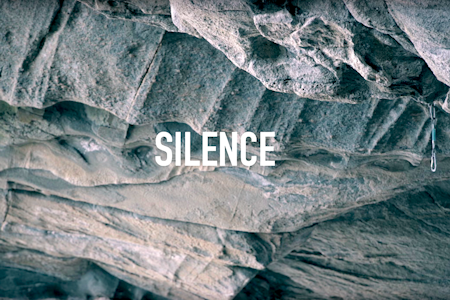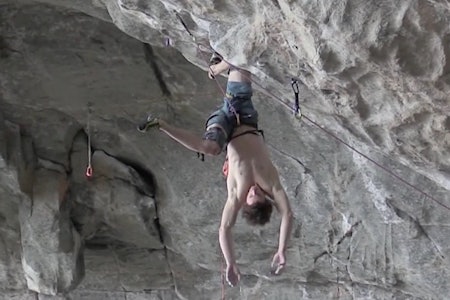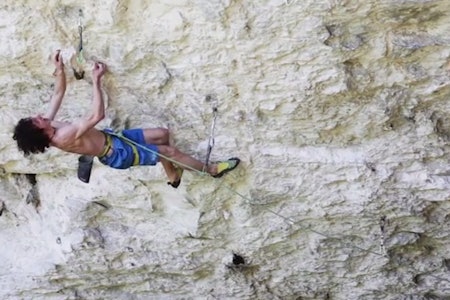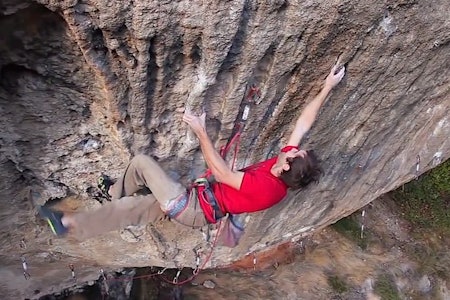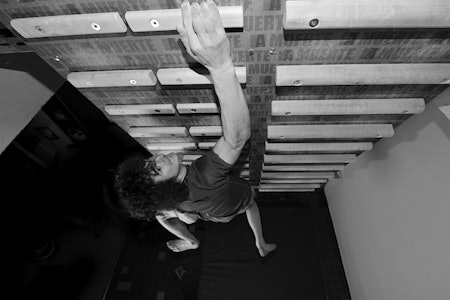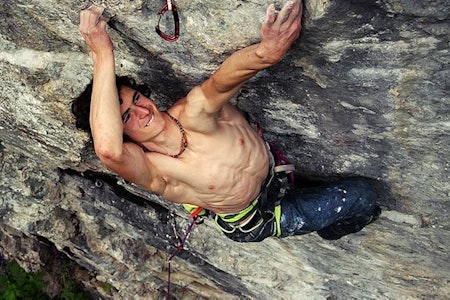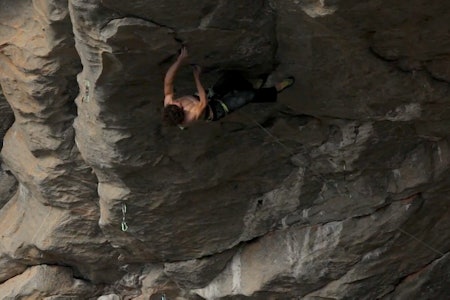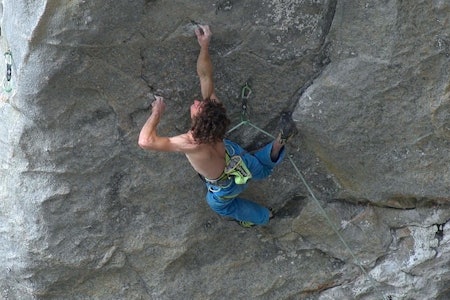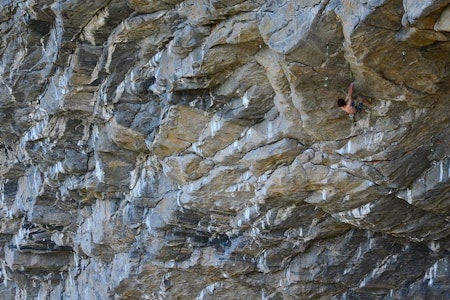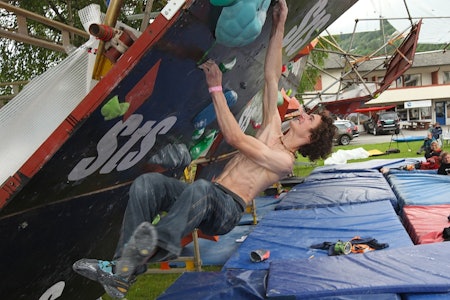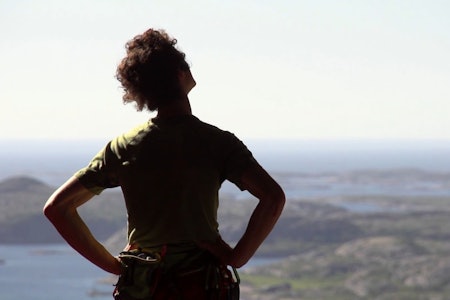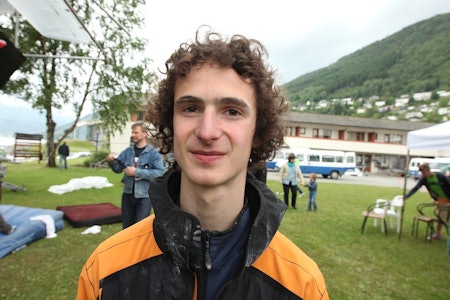Adam Ondra er bare 17 år, men har allerede en nærmest ufattelig liste over prestasjoner å vise til. Bare hittil i 2010 har den unge tsjekkeren gått åtte ruter fra grad 9a til 9b i tillegg til flere buldere av grad 8B+, og han leder 8a.nu sin ranking over både sportsklatrere og buldrere.
Adam Ondra. There’s no need to explain who he is, and why he’s so popular in the climbing community: his performances are inspiring on the rock as well as on plastic. I catch a glimpse of him sitting on the ground, in the open air, after qualifications at the BWC in Vienna and realize it’s the moment to ask my questions, when suddenly I realize it’s going to be a tough job: he’s been interviewed so many times in the last months that I may not find anything interesting to add. I sit close to him, and confront his smile.
Adam, you recently said you’re taking part in the BWC just to keep the ranking, but it seems you’re really committed..
Well, the seasons is well divided, and so I will focus on both lead and boulder. I still have not decided what I’ll do at the European Championship, though.
Well, since you practice both disciplines… which are the emotions at stake in one and in the other?
I think that Boulder changes much in competitions and outdoor. Outdoor it’s very physical, but you can take you time. In competitions it’s really like a problem to solve, and there’s more pressure, also because you’ve got to keep going despite mistakes, it’s mentally hard. Lead changes less, outdoor and competitions are more similar as to the emotions involved, but I feel more pressure outodoor. In competitions it’s onsight, you simply go a muerte.
And what do you like most?
Boulder is better to enjoy the competition, the atmosphere is more friendly; but a mistake can bring you down. I think that lead is less dependent on luck, that’s why I like it most.
You’re still going to school, is that correct?
Yes, I go to school every day until 2pm, then I go training for 2 hours and a half.
Tell us about your training, do you train alone?
I usually train on my own, except at times when I do bouldering. If I go to the gym at 3pm nobody’s there… When I train endurance I do laps… I climb, mostly, but I also do some pull ups on a kind of rotating rail for slopers, my weak point…
When did your climbing career start?
I entered my first competitions at 6. I could already climb 6a, so my mates convinced me to try…
Did your height help you?
I don’t think so, I was the second smallest in my class!
How do you reconcile outdoor climbing and competitions? Do you ever give up going to the crag?
It’s hard for me not to climb outdoor, it’s a psychological torture.
What does it mean for you being an athlete?
Well, if I have to make a distinction I feel more like a climber than an athlete; for me it’s more enjoyment than professionalism. I will keep climbing when I stop competing, doing FA ground up, multipitches…
But you’re a professional nonetheless.
Yes, I am supported by my Federation and by my sponsors.
In one of your recent interviews you mentioned the Olympics.
Yes. I think that climbing – being a natural movement like running or swimming – belongs to the Olympics, and I do not understand why it’s not there. Some say that sport climbing will lose its soul, but I don’t agree. Still, events may be improved, even if I think that what we are missing is basically attention from the media. Boulder is somehow difficult to understand, and lead could probably be more intense or bouldery; but I think that recently it got better, for example the route in China was good, long but fast.
We’re all well informed on your climbing performances, so let’s finish with some personal information… Any other hobby besidesclimbing?
Not really… I listen to the radio, I watch climbing videos… I don’t have much time to read books but I read newspapers…I try to educate myself.
Last but not least… What are your hidden goals or desires?
If I had I wouldn’t tell, because they won’t come true.
Elena Corriero
